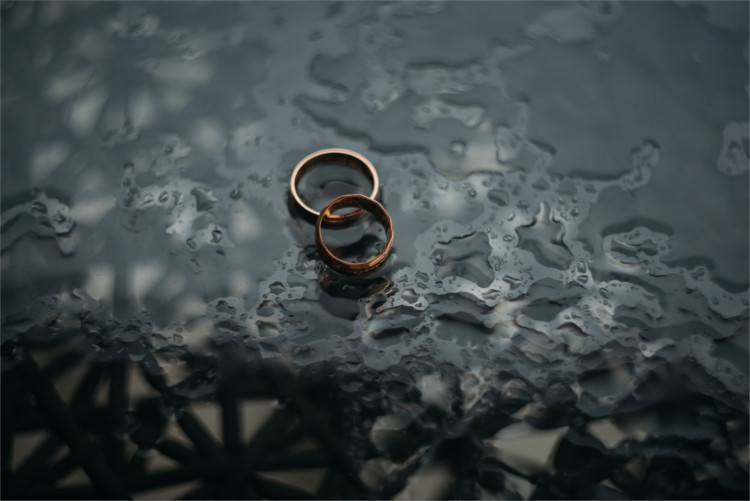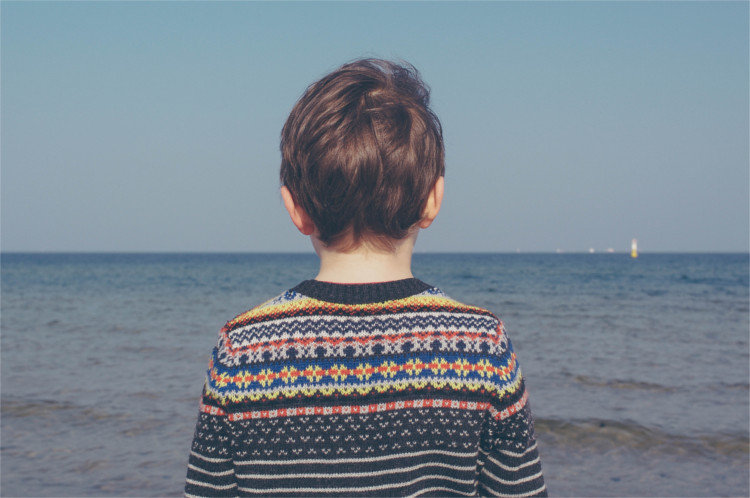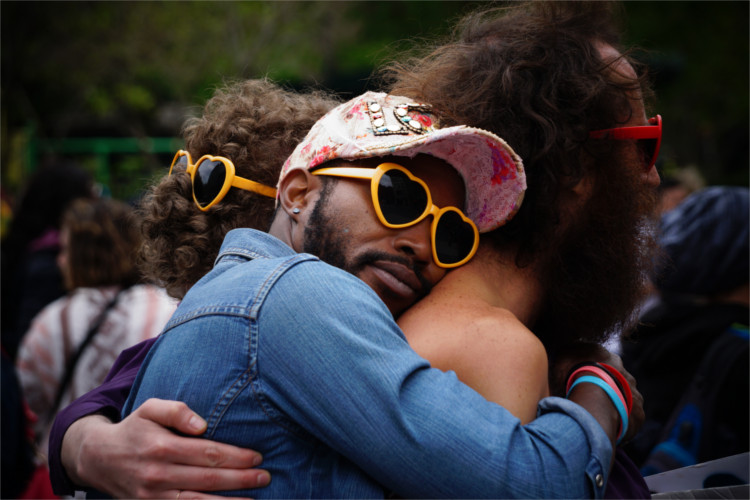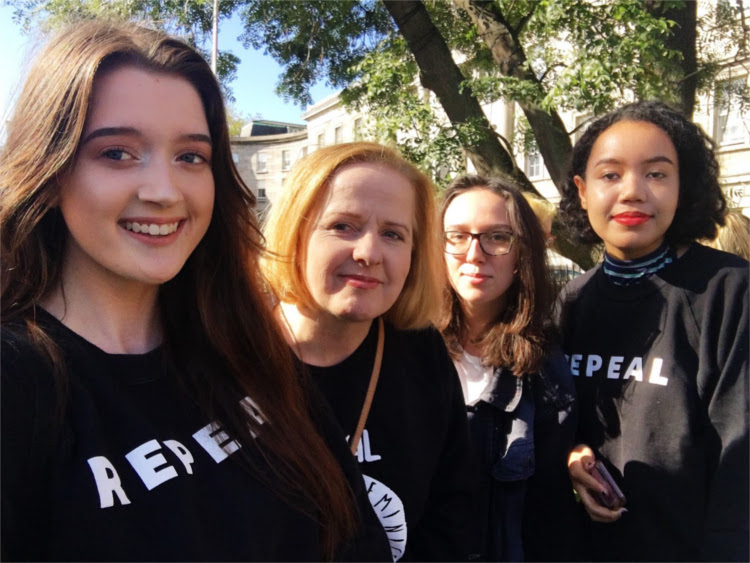A History of Modern Ireland in Four Referendums
The 8th Amendment was enshrined in law only months before I was conceived to my 23 year old mother. I often wonder what possessed my young liberal, atheist Irish parents to start a family in that oppressive atmosphere of 1984. In the space of one year the 8th Amendment was passed, Ann Lovett died in a grotto and Joanne Hayes was publicly crucified in the Kerry babies case. Then there were the everyday horrors of continued incarceration of women in the Magdalene Laundries, the fierce stigma against unmarried mothers, divorce was illegal, marital rape legal and homosexuality was still a crime. Ireland was deep in recession and still very much within the grip of the Catholic Church, its influence overshadowing all aspects of our social, cultural and political life.
There is rarely, if ever, a logical reason to have children but I imagine my parents were young and optimistic that Ireland would change. That progress was possible. I’m sure they didn’t realise it would take another 34 years, one hotly contested referendum after another, before the country they had hoped for would begin to take shape.
Referendum No. 1 – Divorce

My parents separated when I was seven, in 1991, when divorce was still illegal. I remember clearly, even at that young age, how ashamed I was by this event. I felt the shame and disappointment of my grandparents, who could not admit that this could have had happened in our family. I didn’t want anyone to know, not even by best friends. For a couple of years we were the only kids in our school with separated parents.
Five years later and the divorce referendum came round. I was only twelve, but I think I interrogated every adult I knew about how they were going to vote. I still remember my incredulity when I discovered that people close to my family were going to vote ‘no’ despite knowing that that would leave my parents in the eternal limbo of a legal separation – another wonderful Irish solution to an Irish problem.
It was a strange feeling having the whole country discuss your family’s situation on the TV, the radio and the opinion pages of local and national newspapers. The arguments from the ‘No’ campaign were deeply troubling. Posters with “Hello divorce, bye, bye Daddy” were everywhere, people proclaiming that “the heaven’s will fall” and the “floodgates would open” and “won’t anybody think of the children?” According to the ‘No’ campaign my parents had gone against God and the Church, poverty and deprivation were all that awaited us, my brothers and I doomed to a life of poor grades and probable delinquency. Our family was broken, ruined, a sham, the shame of Catholic Ireland. It was a strange feeling to have the whole country wringing their hands about what would happen to the children, children just like me, when none of these supposedly concerned groups ever took the trouble to find out what people in our situation actually thought about it.
It passed though, by a tiny margin of 50.38% of voters who said ‘Yes’. 23 years on from the referendum and Ireland continues to have one of the lowest rates of divorce, spouses enjoy greater equality, people have the freedom to end unhappy marriages with improved (though not perfect) legal protection and to remarry, all as a result of legalising divorce.
Referendum No. 2 – Children’s Rights

The first important referendum I was old enough to vote in was the child rights referendum. It would mean incorporating the Convention on the Rights of a Child, the most widely subscribed convention in international human rights law. It seemed like a given and yet, there was actual opposition to that referendum. Why? Because family comes first in Ireland and where better can the rights of children be protected than in their family? Except that there are unfortunately many examples where that has not been the case. JS Mill said as early as 1869 that “The family is a school of despotism, in which the virtues of despotism, but also its vices, are largely nourished.” Many children in Ireland have lived that first hand sexual, physical, emotional abuse and neglect continue to be experienced by children in their families across Ireland. While one in five Irish women will experience domestic abuse by a current or former partner, Women’s Aid received 3,823 reports of domestic child abuse in 2016 alone. Enshrining children’s rights in the constitution means that, in theory, there would be greater protection against these kinds of abuses.
Who could possibly oppose children’s rights, you ask? Well, some of the most vocal opponents included the Iona Institute, Mattie McGrath, Breda O’Brien, Kathy Sinnot and John Waters. According to their position the language of the UN on children’s rights was far too radical, our constitution provided more than sufficient protection for the rights of the child and a referendum would give the State far reaching powers over children that would outweigh the rights of the family and unduly empower children as ‘mini-adults’ where the State becomes a virtual substitute for the parents.
Thankfully the referendum did pass, though with an exceptionally low turnout and relatively small margin of 58% to 42% in favour. There is much to be done in ensuring all children in Ireland enjoy their rights. According to Barnardos there are 3,267 homeless children in Ireland, while the Children’s Rights Alliance in its 2018 report card has registered 1,300 children living in direct provision, infant mortality for traveller children is nearly four times the national average, religious based discrimination in education is still the norm.
Referendum No. 3 – Marriage Equality

Homosexuality in Ireland was only decriminalised in 1993 thanks to the bravery and insistence of the Gay and Lesbian Equility Network (Glen) and Senator David Norris who challenged the State as far as the European Court of Human Rights. With that hurdle overcome there were other battles to be fought for equal rights for the LGBTQI+ community in Ireland, including the right of same sex couples to marry, finally won in 2015.
I didn’t make it #hometovote in 2015, having already passed the 18 month limit on voting rights for Irish migrants, though I tried to do my bit on social media to promote ‘Yes to Equality’. This vote for me was the first sign that Ireland was finally entering the 21st century, letting go of the last vestiges of Catholic morality and embracing the idea of an Irish society where sexual orientation, and who you love, would not pose an impediment to enjoying equal rights.
Of course there was opposition, the usual suspects – Breda O’Brien, the Iona Institute, David Quinn, John Waters etc – came out with their ‘institution of marriage’, ‘protecting the family’ and of course, ‘won’t anybody think of the children?’ protestations. Alarmist, and frankly absurd, headlines such as ‘Should we allow mothers to marry their daughters?’ and “Gays should Abstain from Sex, Like All Unmarried Couples” featured in national media outlets. Accusations from the LGBTQI+ community in Ireland that their campaign promoted homophobia, were met with RTE awarding ‘damages’ to John Waters and Breda O’Brien for more than 90,000 euros as a result of these comments. Because in Ireland, as Emer O’Toole pointed out, the homophobes are victims. Meanwhile a recent study showed that the homophobic messaging from the no campaign had a concrete impact on the emotional wellbeing of members of the LGBTQI+ community, with 75% of respondents saying they felt angry, 80% upset and 66% distressed when confronted with the no campaign messaging.
In the end love triumphed, equality won. Almost two thirds of the population voted in favour of marriage equality.
Referendum No. 4 – Repeal

Divorce, children’s rights, same-sex marriage, they have all come to pass in Catholic Ireland. Abortion is the last bastion of Church power in Ireland and it will not let go without a fight.
I have not been directly affected by the 8th, as I have never been pregnant, but people close to me have felt its impact. Due to the stigma and shame that continues to surround the issue in Ireland, it is likely that far more friends and family than I realise have felt the impact of the 8th amendment, from compromises to their bodily autonomy during pregnancy, to traveling to England for a termination, to ordering abortion pills online.
It has been proven time and time again that this situation is untenable. How many more lives lost, martyred to our constitution? How many more Miss’s X, Y, A, B, C, Ds? We are running out of letters in the alphabet. How many more judgements from international human rights body that declare our country’s laws as cruel and inhuman? How many more women need to bare their lives and sometimes their own personal tragedies to the nation before compassion will win over the imposition of one ‘morality’ over an entire nation?
As the May 25th date draws ever closer, the No Campaign has become ever more extreme. While the tone-policing of the Yes side by the Irish media never seems to end, it is the anti-choice side that throw about the words the slurs ‘murderers’ and ‘baby-killers,’ that call bereaved families liars, that troll, abuse and bully any one who dares to reveal the messy, complicated and sometimes tragic circumstances that lead people to choose and abortion. Once again we hear the No Campaign wring their hands about the “family”, anguish about “floodgates” and the exclamation of “won’t anyone think of the children?”
The Repeal campaign is labelled as extreme for campaigning to give women a choice while the #SaveThe8th campaign would continue to deny essential health care that is available across the water and in the majority of European democracies, despite the overwhelming evidence that the 8th amendment jeopardises the life and health of Irish women and pregnant people and amounts to cruel and inhuman treatment.
Who is leading this assault? You guessed it: the Iona Institute, David Quinn, John Waters, Mattie McGrath oh and of course Breda O’Brien,. Are you starting to see the pattern? You would be forgiven for thinking that rather than ‘life’ the real agenda of these people is controlling and limiting all aspects of sexual freedom for Irish people.
I feel for families and the people who have, for whatever reason, opted to terminate a pregnancy and who will be confronted by the propaganda of the anti-choice campaign, on a daily basis until May. The anti-choice side, despite their assertions of #loveboth, show little or no compassion for the people who have to make that choice under a multitude of circumstances. Women, pregnant people and families are reminded every day that there are people in Ireland who believe they should feel shame for making that choice. Their side would happily keep all women and pregnant people who have terminated their pregnancies in silence, the silence that reigned in Ireland for decades, when even providing information on abortion services was a crime. Silence means they do not have to confront the uncomfortable, and sometimes tragic reality, that leads people to make that choice.
Coming home to a transformed Ireland?
[perfectpullquote align=”right” bordertop=”false” cite=”” link=”” color=”#8D3AF9″ class=”” size=””]Now the Church’s last bastion of power over Irish life could finally be broken, and I cannot have a say.[/perfectpullquote]
The 8th Amendment is 34 years old. As a 33 year old Irish woman contemplating a return home to Ireland and the possibility of motherhood, this is the most important referendum of my life time. For many of us it is a question of life and death. And yet I do not have the right to vote. I am now into my sixth year of living abroad and thus have neither a distance vote nor would I be legally entitled to vote if I were to return home in May. I am still registered at my old address and I would happily pay the 800 euro airfare to come home, but I have decided not to jeopardise the legality of a positive referendum result doing so.
That I cannot participate in the #HomeToVote movement is frustrating to say the least. Catholic Ireland alienated me to the degree that as soon as I was old enough, I left. Now the Church’s last bastion of power over Irish life could finally be broken, and I cannot have a say. I do my best from far away, blogging, writing, tweeting and retweeting, donating what I can to the Repeal campaign and ARC, but it never feels like enough.
34 years, four referendums and three unequivocal decisions by the Irish people to put rights before dogma, equality before fundamentalisms and compassion before fear. I am hopeful that I will be returning to a country where I will no longer feel like a second class citizen and where my right to bodily autonomy is finally respected. Where there is no longer the possibility of another Ann Lovett, Joanne Hayes, Miss X or Savita Halappanavar. Repealing the 8th is a vital step towards justice for Irish women.
Featured Photo by Elliott Stallion on Unsplash
